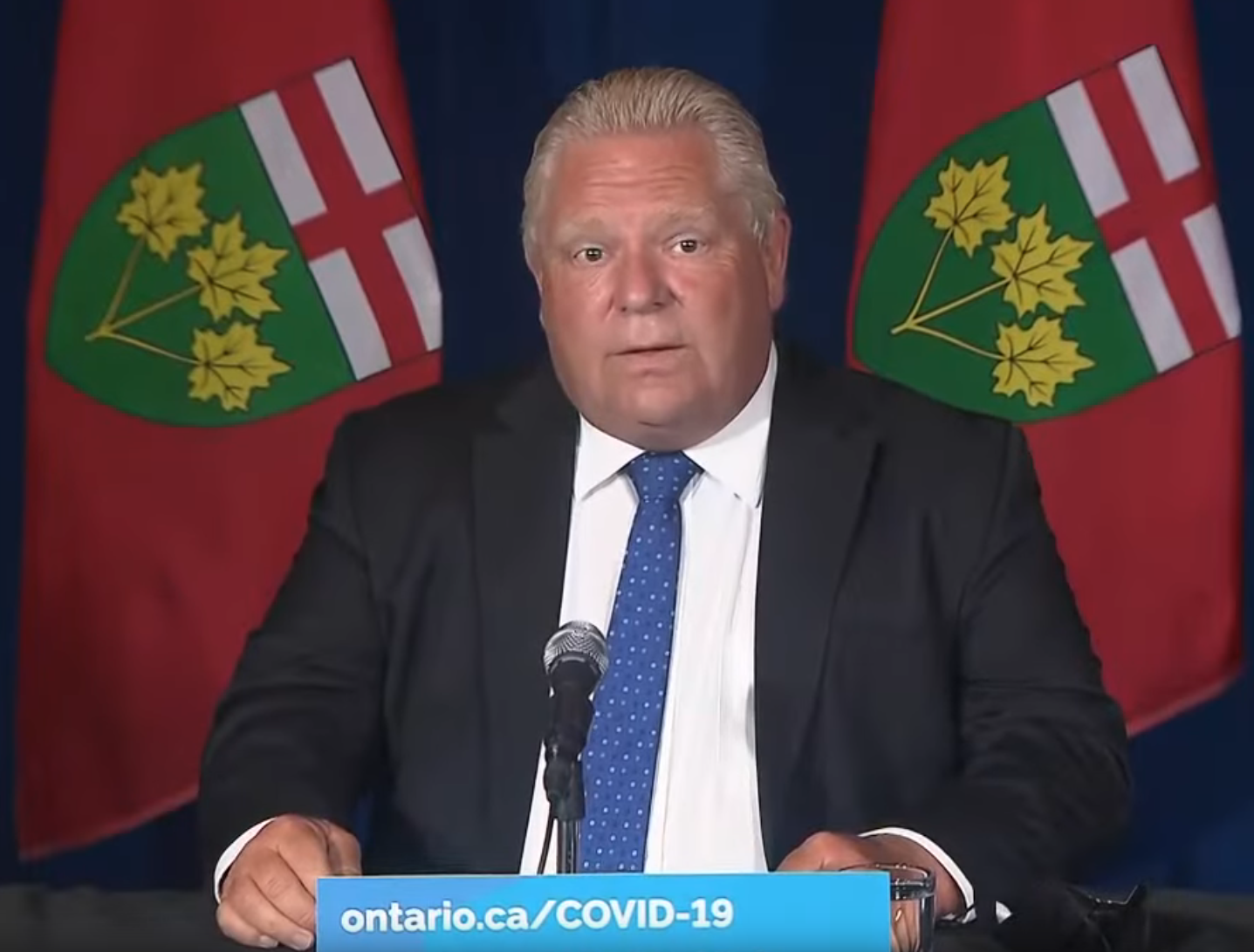TORONTO – The provincial government has reversed its stance on vaccine passports.
Ontario Premier Doug Ford previously responded with a “hard no” to the idea of implementing a provincially-led vaccine passport system, saying it would lead to a “split society.”
But on Sept. 1, Ford announced a vaccine passport is on the way, also taking a jab at Prime Minister Justin Trudeau in his remarks.
“It’s clear that a national system is far better than a patchwork of certificates across every single province and territory in the country, especially as more Canadians travel abroad, but Justin Trudeau has told us that they will not be rolling out a national vaccine passport while their election is ongoing,” Ford said in his opening remarks.
“We can’t wait any longer, we must take immediate action, and we will.”
Ford, flanked by health minister Christine Elliott, chief medical officer of health Dr. Kieran Moore and associate digital government minister Kaleed Rasheed, stressed, “It’s no secret, this is something that I did not want to do.
“This is a serious step that we’re not taking lightly and I know this is going to be very difficult for some people—and let me be clear this is a temporary tool that we won’t use for a day longer than we have to.”
Starting Sept. 22, patrons and customers will have to prove they are fully vaccinated before entering restaurants (not including outdoor patios), nightclubs, meeting/event spaces, sports and fitness settings, sporting events, gaming establishments like casinos, concert halls, theatres, strip clubs, and indoor racing venues.
Health minister Christine Elliott said the approach focuses on indoor settings where large numbers gather and face coverings cannot always be worn.
Those with proven medical exemptions and those under the age of 12 are exempt from having to prove vaccination status to enter the selected settings.
The passport requirement also doesn’t apply to staff working at the selected establishments, which would need to develop their own immunization policies or meet the province’s minimum requirements, as is the case for some settings like long-term care homes and hospitals.
The current vaccine receipts, available for download as a PDF from the province’s online portal, will be used as proof of full vaccination (14 days must have passed after receiving a second vaccine dose to be considered fully vaccinated). Photo ID will also need to be presented in addition to a vaccine receipt.
Receipts can be presented in physical, paper format, or downloaded to a mobile device and presented on screen.
The requirement to prove vaccination does not apply to essential settings like grocery stores or to access medical care and doesn’t apply to settings like churches or hairdressers.
Factored into the new requirements is an exception allowing for a negative rapid antigen COVID-19 test taken a maximum of 48 hours before an event to be presented in place of having to prove vaccine status for weddings and funeral receptions between Sept. 22 and Oct. 12.
Starting on Oct. 22 the province aims to release a new mobile phone application being developed as an alternative to the paper receipt format.
The app will present a QR code that will be scanned by staff at required establishments.
Paper receipts can still be used, however, they will be enhanced to meet the “Smart Health Card” standard with a scannable QR code added.
The responsibility for verifying ID and vaccine receipts falls onto staff at establishments and businesses until the ability to scan QR codes rolls out on Oct. 22. At that point, staff will scan the codes using an app taking over the verification process and displaying a status on-screen with a yes/no or a checkmark.
“These tools will provide a simpler, faster, and better way to prove vaccination status that is both convenient and secure – while also supporting businesses with an easy validation process,” said associate minister of digital government Kaleed Rasheed.
For the few who are medically exempt from receiving a COVID-19 vaccine, a doctor’s note can be presented in the interim to access settings until exemptions are integrated into the digital system.
“Ontario will develop and provide additional tools to improve user experience, efficiency and business supports in the coming weeks, including establishing alternative tools for people with no email, health card or ID,” states a press release issued following Wednesday’s announcement.




